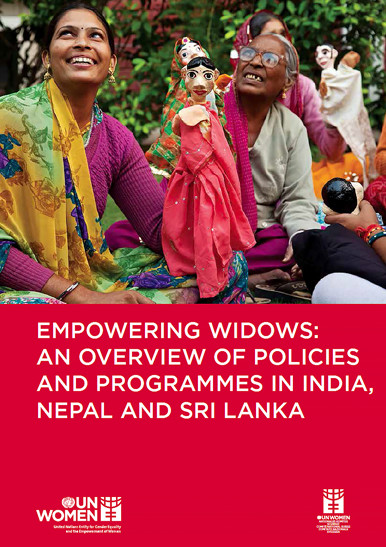
Empowering Widows: An Overview of policies and programmes in India, Nepal and Sri Lanka

The South Asia region has witnessed consistent economic growth over the past decades, resulting in rapid modernization. Increased commitments to women’s empowerment have resulted in progressive policies. Despite best efforts, however, some gaps remain. Empirical studies indicate towards the presence of islands of marginalisation within societies which are otherwise known for their strong social fabric and spirit of kinship. One such group that requires urgent attention is of widows.
As members who are traditionally perceived as being a burden and inauspicious to the family, widows in the region are often relegated to a status of the ‘unwanted insiders’. The ‘triple burden’ that they have to contend with, in the form of stigma associated with widowhood, severe constraints on access to resources, and sexual vulnerability, makes them one of the most marginalised and vulnerable communities in this region. This is a stark contrast to their male counterparts, who are not subject to similar socio-economic exclusion within households. The problems that confound widows in the region are therefore manifestations of the extreme gender disparities that are inherent to the subcontinent, where widowhood is persistently viewed as a social stigma.
The existing state of deprivation of a large majority of widows in South Asia especially in India, Sri Lanka and Nepal needs to be taken cognizance of and addressed in keeping with the form and spirit of the Convention on the Elimination of all forms of Discrimination against Women (CEDAW). To shed light on their struggles and multiple vulnerabilities, UN Women initiated the following research to identify policies and programmes related to widows in India, Nepal and Sri Lanka. The study seeks to give an overview of what currently exists and attempts to flag critical issues in this context.